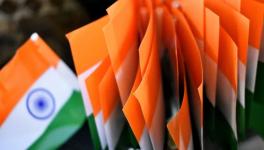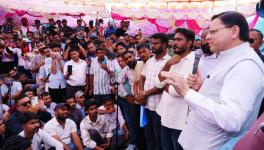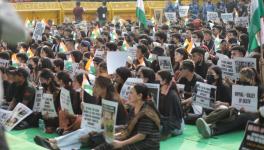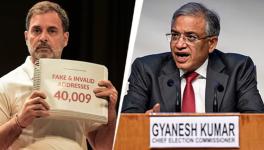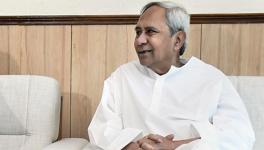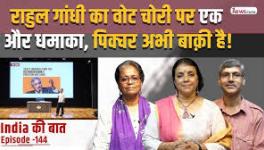The Many Languages We Speak
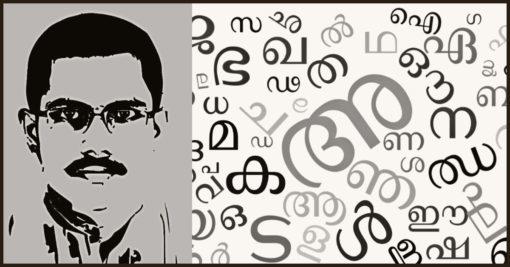
On September 14, 2019, Union Home Affairs Minister Amit Shah proclaimed the need for a single language to "unify" the nation and the ability of Hindi to do so, a language he assumes to be the most "widely-spoken" in the country. "India is a country of different languages and every language has its own importance but it is very important to have a language which should become the identity of India in the world. If one language can unite the country today, it is the widely-spoken Hindi language," he tweeted right after the proclamation.
The latest in Hindutva's attempts at homogenisation of the country and through it, bring about a twisted idea of nationalism, Shah's words have rocked the non-Hindi speaking regions of the country. Artists and activists from various parts of the country have also been voicing their dissent. The poem below, by professor and activist Raheem Ponnad from northern Kerala's Malappuram, is one such outcry. Written originally in Malayalam, the poem talks about a probable situation in the country if all of us were forced to speak a single language, one so alien to the most of us. The poem by now has been translated into English, Hindi, Telugu.
The Language Ban
Raheem Ponnad
Then one midnight
They proscribed language.
‘From today you can use
Only one language.
You can exchange your language
At the post-office.’
People who woke up in shock
Began to run helter-skelter.
Silence filled the air.
Mothers covered children’s mouths,
And stuffed the mouths of the elders with bits of cloth.
The music in the temple stopped,
And the azaan in the mosque.
The radio played only veena
And the television moved to sign language.
Instead of the newspaper
The readers got eight blank sheets.
All keyboards went still
And the mobile screen displayed only codes.
No one spoke in the queue at the post-office:
They could exchange only two words per day!
Some carried sacks full of words
And there were children with bags and
Dubbas crammed with words.
Those who gave amma got ‘maa’;
Those who gave achhan were given ‘baap.’
Children who had queued up
To exchange ‘chocolates’ and ‘games’
Were sent back from the counter:
Only Malayalam words could be exchanged.
Because there were no substitutes,
Bejar (embarrassment) and edanger (trouble)
could not be exchanged either.
The one who came to exchange kaththi (knife)
Was driven off by the crowd and
The one who had come to exchange ganja (opium)
Was caught by the police.
An old man collapsed from exhaustion
Having stood in the queue for long.
He begged for vellam (water);
he got a bullet in his mouth.
On reaching home,
I found my courtyard strewn with words,
Dug out by my kin for exchange —
Old, new, some without letters.
I could not comprehend
The words my father had pulled out of the pillow
And I had never heard the words my mother
Had kept hidden on the edges of her loincloth.
Only when my wife pulled me into the kitchen
Did I find out she was being cooked among so many words.
Daughter’s bag was full of words for her homework
Son’s box had playful words, their letters gone awry.
How can I tell them only two words can be exchanged?
I searched for long in the pile of words.
Finally something heavy struck both my hands.
I pulled them out with all my strength:
Janadhipatyam (Democracy). Nanatvam (Diversity).
By the time I rushed to the post-office with them
It was already growing dark
The man at the counter looked at my hands
And he stood up, startled;
The words fell from my hands
Some unknown men surrounded me;
Boots echoed all around:
‘Traitor!’ ‘Kill him!’
Even as I was losing consciousness
I heard, in absolute terror,
Those words given in exchange.
(Translated from Malayalam by K Satchidanandan)
Get the latest reports & analysis with people's perspective on Protests, movements & deep analytical videos, discussions of the current affairs in your Telegram app. Subscribe to NewsClick's Telegram channel & get Real-Time updates on stories, as they get published on our website.









